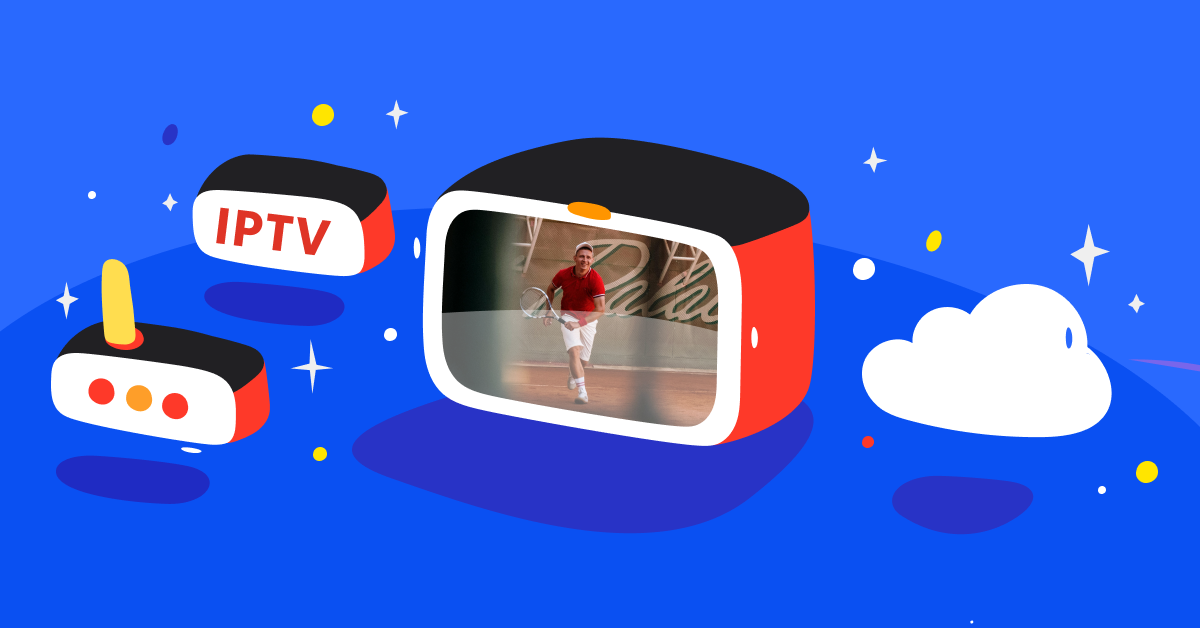It wasn’t so long ago that families gathered around the television set at a specific hour to catch their favorite show. The living room was the center of entertainment, and the programming schedule dictated your routine. But those days are behind us. Now, control has shifted — not to TV channels, but to viewers. Enter IPTV, or Internet Protocol Television, a technology that has redefined the way we consume television.
I first stumbled upon IPTV out of frustration. It was during a major sports event — my cable went down, and buffering made streaming unbearable. That’s when a tech-savvy friend mentioned IPTV. The name didn’t ring a bell back then, but it soon became the answer to all my digital viewing woes.
But what is IPTV really? Why is it turning heads across the world? And more importantly, why might it just be the best upgrade for your home entertainment system?
Let’s dive deep into the world of IPTV, its mechanisms, advantages, challenges, and future.
What is IPTV?
IPTV, or Internet Protocol Television, refers to the delivery of television content over Internet Protocol (IP) networks. In simpler terms, instead of receiving broadcast signals via satellite or cable, you stream content over an internet connection.
It’s not just streaming like YouTube or Netflix — though it can resemble them. IPTV is an integrated system of live TV, on-demand videos, and sometimes even recorded content, all accessible through a digital interface and delivered over broadband.
Types of IPTV Services
There are three main formats of IPTV:
- Live Television: Real-time streaming of channels, similar to traditional broadcast TV.
- Video on Demand (VOD): You choose what to watch and when. Think Netflix-style, but often broader in scope.
- Time-Shifted TV (Catch-Up TV): Rewind, pause, or watch programs that aired hours or days ago — useful if you miss live broadcasts.
How IPTV Works
Here’s the core idea: IPTV uses a packet-switched network, like the internet, instead of traditional broadcast formats. This allows for personalized, on-demand content delivery.
Here’s what happens behind the scenes:
- Content (TV shows, movies, live channels) is stored on a centralized server.
- When a viewer requests a video or channel, that content is streamed to their device using Internet Protocol.
- The IPTV system adapts to the device (smart TV, computer, smartphone, set-top box) and internet speed to deliver optimal quality.
To make this happen, a good IPTV service requires:
- A stable, high-speed internet connection.
- A media player or smart app (like VLC, Kodi, or a proprietary IPTV app).
- A subscription to an IPTV service provider.
Why IPTV is Gaining Popularity
Let’s face it — modern viewers want control. We want to watch what we want, when we want, and where we want. IPTV checks all these boxes. But there’s more to its rise than just convenience.
1. Variety of Content
IPTV platforms often give access to thousands of international channels — sports, movies, news, lifestyle, and even niche regional channels. It breaks the geographic boundaries of traditional TV.
2. Affordability
Many IPTV subscriptions are significantly cheaper than cable or satellite packages, especially considering the content volume and quality. Some services even offer trial periods or monthly flexibility.
3. Accessibility
All you need is an internet connection and a compatible device. Whether you’re at home or on the go, IPTV travels with you.
4. Interactive Experience
Some IPTV services allow users to interact with the content: rating shows, setting reminders, or even engaging in polls or trivia during live broadcasts.
5. No Contracts or Hidden Fees
Say goodbye to long-term commitments and surprise bills. Most IPTV services operate on a month-to-month basis with transparent pricing.
IPTV vs Traditional TV: The Key Differences
| Feature | IPTV | Traditional TV |
| Delivery | Via Internet (IP) | Cable/Satellite/Antenna |
| Content Type | Live, On-Demand, Catch-Up | Mostly live |
| Device Compatibility | Smart TVs, Phones, PCs | Limited to TV sets |
| Interactivity | High | Low |
| Customization | Personalized playlists | Fixed programming |
| Cost | Typically cheaper | Higher, with hidden fees |
The verdict? IPTV is a clear winner in flexibility and user experience.
The Best IPTV Features to Look For
If you’re considering making the switch, don’t just choose any provider. Here are some key features to keep in mind:
- HD or 4K Streaming: With modern TVs, high-definition is non-negotiable.
- EPG (Electronic Program Guide): A well-designed EPG helps users find what they’re looking for.
- Multi-Device Support: Ensure your subscription works on multiple platforms.
- Catch-Up & Recording Features: Ideal for busy households.
- Fast Customer Support: Issues can arise; support should be responsive.
Legal and Technical Considerations
A common concern: Is IPTV legal?
The answer is yes — but only if the service has the proper content distribution rights. Many legitimate IPTV services operate under licensing agreements and are completely above board.
However, the rise of “grey market” IPTV services (those offering pirated content) has blurred the lines. When choosing a provider, always ensure they’re authorized and compliant with local regulations.
On the technical side, here are a few tips for a smooth IPTV experience:
- Use Ethernet or a high-speed Wi-Fi connection.
- Install a VPN if your ISP throttles streaming services.
- Keep your apps updated for best compatibility and security.
Common Myths About IPTV
Let’s bust a few misconceptions:
Myth 1: IPTV is the same as illegal streaming
Reality: Many IPTV services are 100% legal. It depends on licensing.
Myth 2: You need tech skills to set it up
Reality: If you can install a mobile app, you can use IPTV.
Myth 3: IPTV buffers constantly
Reality: A decent provider and a stable connection mean seamless streaming.
Myth 4: It’s only for live TV
Reality: With on-demand and catch-up features, IPTV covers all use cases.
IPTV in the UK: A Hotbed of Growth
The UK, in particular, has seen explosive growth in IPTV adoption. With the cost of cable packages rising and limited content availability, viewers are turning to IPTV for a better deal. Services like IPTV offer robust content libraries, support for UK and international channels, and smooth streaming experiences — ideal for users who want more from their screen time.
Moreover, British expats abroad are using IPTV to reconnect with home — watching BBC, ITV, Sky Sports, and other UK-based content from anywhere in the world.
The Future of IPTV: What’s Next?
IPTV is far from a passing trend. With 5G rolling out and internet infrastructure improving globally, the future is bright. Here’s what we can expect:
- More AI integration: Personalized recommendations, auto-playlists, smart ads.
- Voice and gesture controls: Especially with smart home ecosystems.
- Augmented and Virtual Reality: Immersive experiences, especially for sports and gaming.
- Cloud DVR: Record and access your content from anywhere.
- Interactive advertising: Ads you can engage with, rather than passively view.
IPTV is evolving from just “watching TV online” to becoming a fully immersive, intelligent content experience.
Final Thoughts: Why You Should Make the Switch
The way we experience television has fundamentally changed. We no longer have to be passive consumers of whatever broadcasters want us to see. IPTV gives viewers choice, freedom, and control — all at a price that often beats traditional providers.
From high-quality streaming to a global content library, IPTV has redefined home entertainment. And if you’re looking for a reliable, high-performance provider, IPTV offers some of the best subscriptions available in the UK market today.
Whether you’re a sports enthusiast, a movie lover, or just someone who wants more out of your TV time, IPTV could be the upgrade you’ve been waiting for.














Leave a Reply